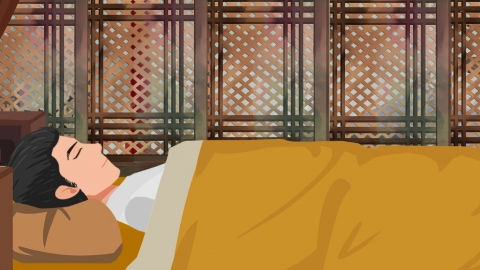What causes excessive sweating all over the body during sleep at night?
Generally, excessive sweating all over the body during sleep at night may be caused by high environmental temperature, improper diet before bedtime, menopausal syndrome, hyperthyroidism, tuberculosis, or other reasons. It is recommended to seek medical attention promptly, identify the underlying cause, and receive symptomatic treatment under a doctor's guidance. Specific analyses are as follows:

1. High environmental temperature: If the sleeping environment is too hot or the bedding is too heavy, the body’s heat dissipation may become impaired, leading to sweating. This can be improved by appropriately lowering room temperature, choosing breathable and lightweight bedding, and ensuring good indoor air circulation.
2. Improper diet before bedtime: Consuming spicy or stimulating foods, alcohol, or strong tea before sleep can accelerate metabolism and increase heat production, resulting in night sweats. Adjust pre-sleep diet by avoiding spicy foods, alcohol, and strong tea, and remain fasting 1–2 hours before bedtime.
3. Menopausal syndrome: As women enter menopause, ovarian function declines and estrogen levels fluctuate, causing abnormal blood vessel constriction and symptoms such as night sweats. Medications such as estradiol valerate tablets, nylestriol tablets, or oryzanol tablets may be used as prescribed. Additionally, maintaining emotional stability and regular作息 (daily routines) is important.
4. Hyperthyroidism: Excessive secretion of thyroid hormones accelerates metabolism and increases heat production, leading to excessive night sweating. Symptoms may also include palpitations and weight loss. Medications such as methimazole tablets, propylthiouracil tablets, or carbimazole tablets may be used as directed by a physician. In severe cases, subtotal thyroidectomy may be performed to reduce thyroid hormone secretion.
5. Tuberculosis: Infection with *Mycobacterium tuberculosis* can cause low-grade fever and night sweats, with noticeable sweating at night, along with possible symptoms such as cough and fatigue. Treatment involves taking medications such as isoniazid tablets, rifampicin capsules, and pyrazinamide tablets as prescribed, completing a full course of standardized anti-tuberculosis therapy.
In daily life, maintain a comfortable sleep environment, avoid vigorous exercise before bedtime, and keep a regular sleep schedule. After sweating, promptly dry the body and change into dry clothing to prevent chills. Eat more vegetables and fruits to supplement vitamins, strengthen physical health, and reduce discomfort associated with sweating.










